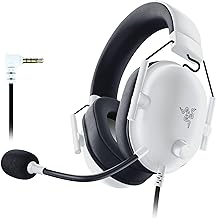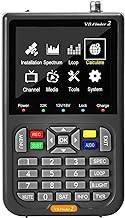5 important factors worth considering when looking for the best cb antenna
When buying a CB antenna, it’s important to consider key factors that can affect how well it works. Your choice of antenna can make a big difference in how far your communication system can reach and how clear the message is. There are different types of antennas to choose from, and it can be confusing to figure out which one is best for you. By looking at your needs and budget, you can make a smart decision that will improve your CB radio experience.
See our guide to the best cb antenna.
Length of antenna
When choosing a CB antenna length, consider factors to improve communication range and performance. Longer antennas might offer better range and clarity in open spaces, but may not be practical in areas with low clearance. Terrain type also plays a role, with longer antennas working well in hilly areas and shorter antennas in urban settings with tall buildings. Finding the right balance between antenna length, environment, and communication needs is crucial. Carefully evaluating these factors will help you select the best antenna length for your specific requirements and enhance your CB radio experience.
Type of antenna (e.g. whip, fiberglass, magnetic)
When choosing a CB antenna, the type you pick is important for how well your communication system works. Whip antennas are popular because they can send and receive signals well, and they are easy to adjust for better signal strength in different conditions. Fiberglass antennas are durable and can handle tough weather, making them good for long-term use. They are also lightweight and easy to install.
If you need a temporary antenna or one that can move easily, you might consider a magnetic antenna. These antennas stick to metal surfaces quickly, but they might not work as well as whip or fiberglass antennas in rough conditions where signal strength is crucial. Choose the antenna type that fits your needs and usage to make sure your communication system works as well as possible. Think about things like durability, signal range, installation ease, and adaptability when picking a CB antenna.
Gain of antenna
When you’re buying a CB antenna, one important thing to consider is the gain of the antenna. Gain influences how well your CB radio system works for both receiving and sending signals. A higher gain antenna can make signals stronger, which means you can communicate more clearly over longer distances. However, it’s important to find a balance between gain and practicality. If you mainly use your CB radio for short-distance talks, choosing a very high gain antenna could lead to signal problems and unwanted interference. That’s why it’s crucial to understand your specific needs and how you plan to use the antenna to make sure you get the best performance.
Selecting the right gain for your CB antenna isn’t just about going for the biggest number. It’s about picking one that matches your needs and environment. While a high gain antenna might be best for open areas, it might not be the right choice for cities with lots of objects that can block or bounce signals. On the other hand, a lower gain antenna can be more flexible and less likely to have interference in busy areas. It’s important to choose a gain that works well with your communication needs and surroundings to make sure your CB radio setup works efficiently. By finding a good balance and thinking about different factors, you can make a smart choice that helps your CB radio system work at its best.
Mounting options
Selecting the right mounting option is crucial when buying a CB antenna. There are different styles to choose from, like magnetic mounts for easy moving or roof mounts for better signal. Each option has its own pros and cons, so think about your vehicle, how you’ll use the CB, and how far you want to reach.
The way you mount your CB antenna affects how well it works in real life. A good mount improves signal quality and reduces interference. It also helps your equipment last longer by keeping it stable in tough conditions. Taking the time to pick the best mounting option for your needs can greatly improve the performance and lifespan of your CB antenna setup.
SWR tuning capabilities
When deciding on which CB antenna to buy, it’s important to look at its SWR tuning abilities. A good antenna with strong SWR tuning can improve how well your CB radio system works. By making sure your antenna can be adjusted to match your operating frequency, you can reduce signal loss, make your transmissions clearer, and increase the distance your messages can reach. Getting a CB antenna with great SWR tuning isn’t just convenient – it’s a smart choice to boost your overall CB radio experience.
Additionally, being able to fine-tune your CB antenna’s SWR can also help your radio equipment last longer by lowering the chance of damage from frequencies that don’t match up correctly. A properly tuned antenna will not only give you better transmission and reception quality, but it will also shield your CB radio from potential harm caused by high SWR readings. So, when picking out a CB antenna, focus on models that allow for easy and precise SWR tuning adjustments to improve your communication abilities while safeguarding your equipment investment. Remember, a well-tuned antenna is vital for a dependable CB radio system, providing performance improvements and equipment protection that are essential for any CB radio fan.
Conclusion
The CB antenna is like a symbol of communication in a world full of technology. It may seem old-fashioned to some people nowadays, but it actually plays a big role in helping people connect over long distances. Even though technology is always changing, the CB antenna still has an important place in bridging gaps between people. Remembering the importance of the CB antenna reminds us how simple things can still have a big impact on bringing people together in a world that can feel overwhelming. Want more info on blender food processors, check the best blender food processors.


